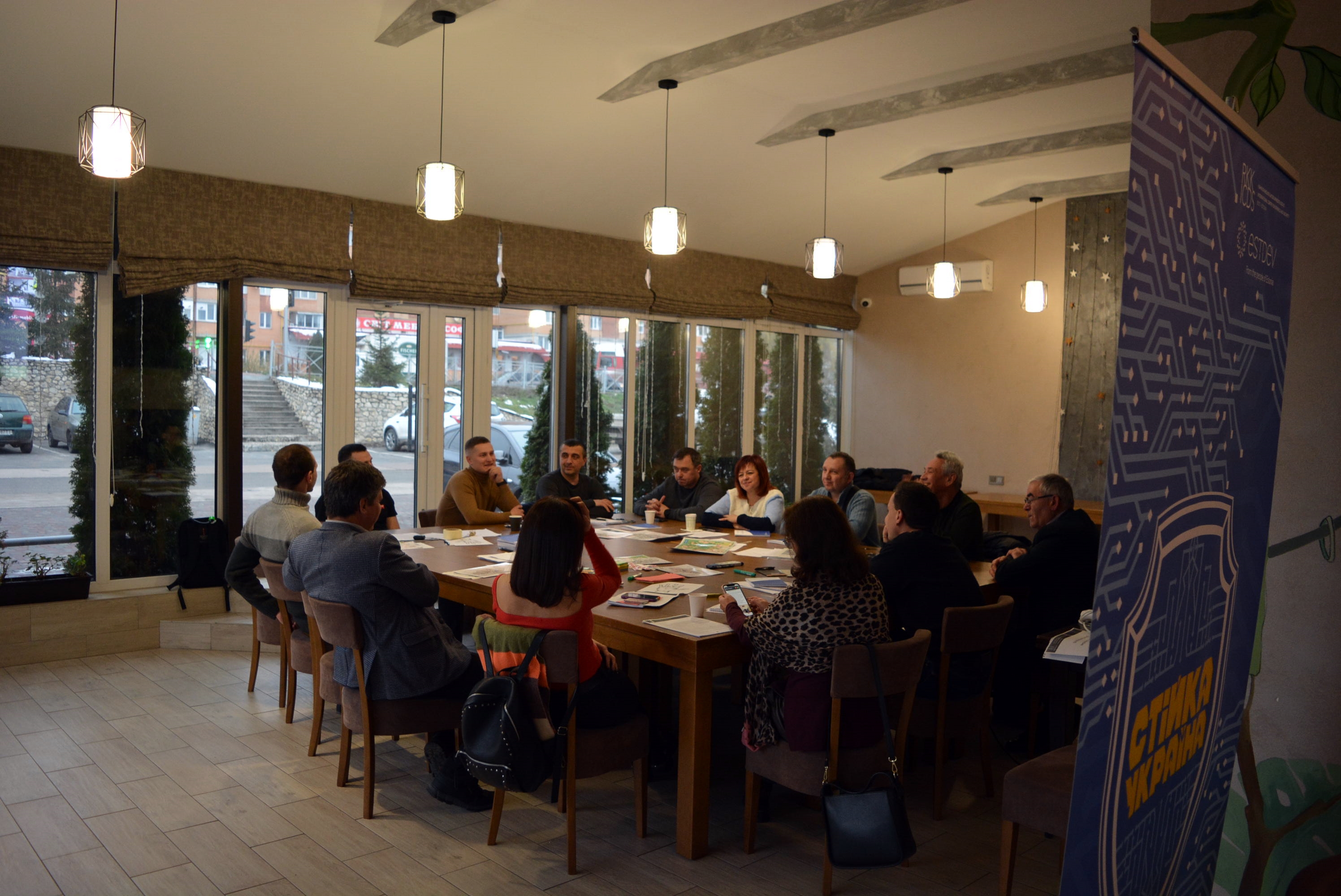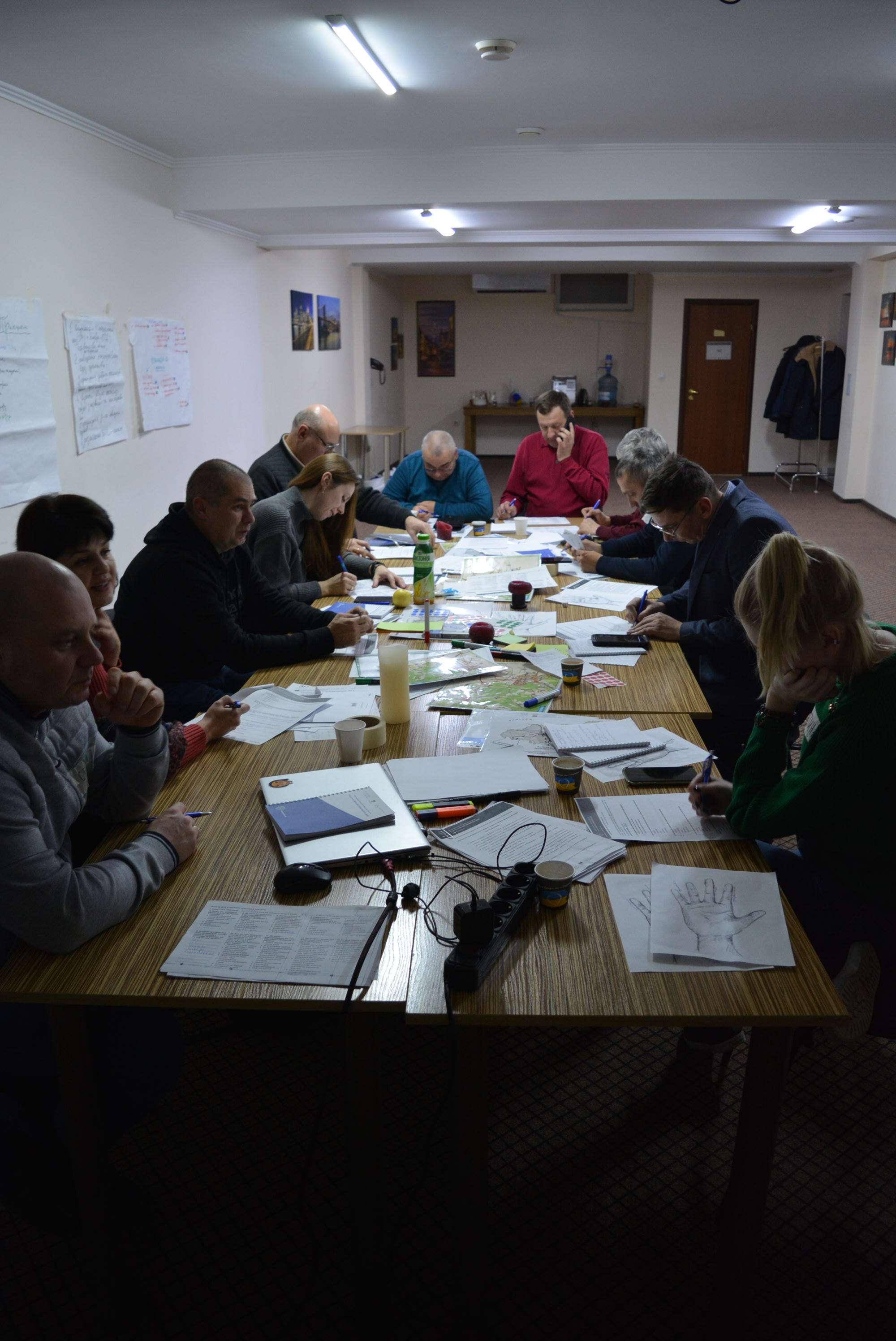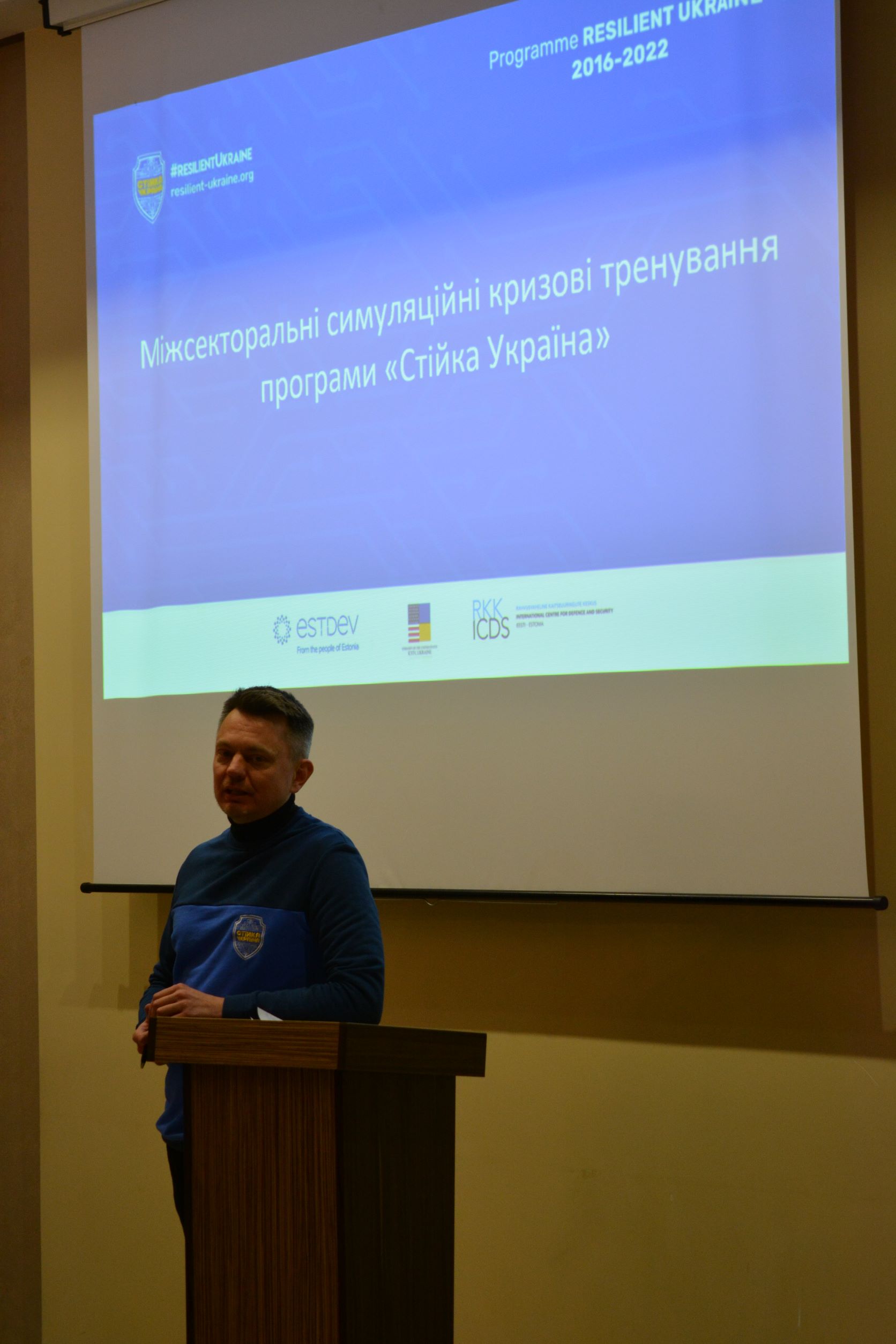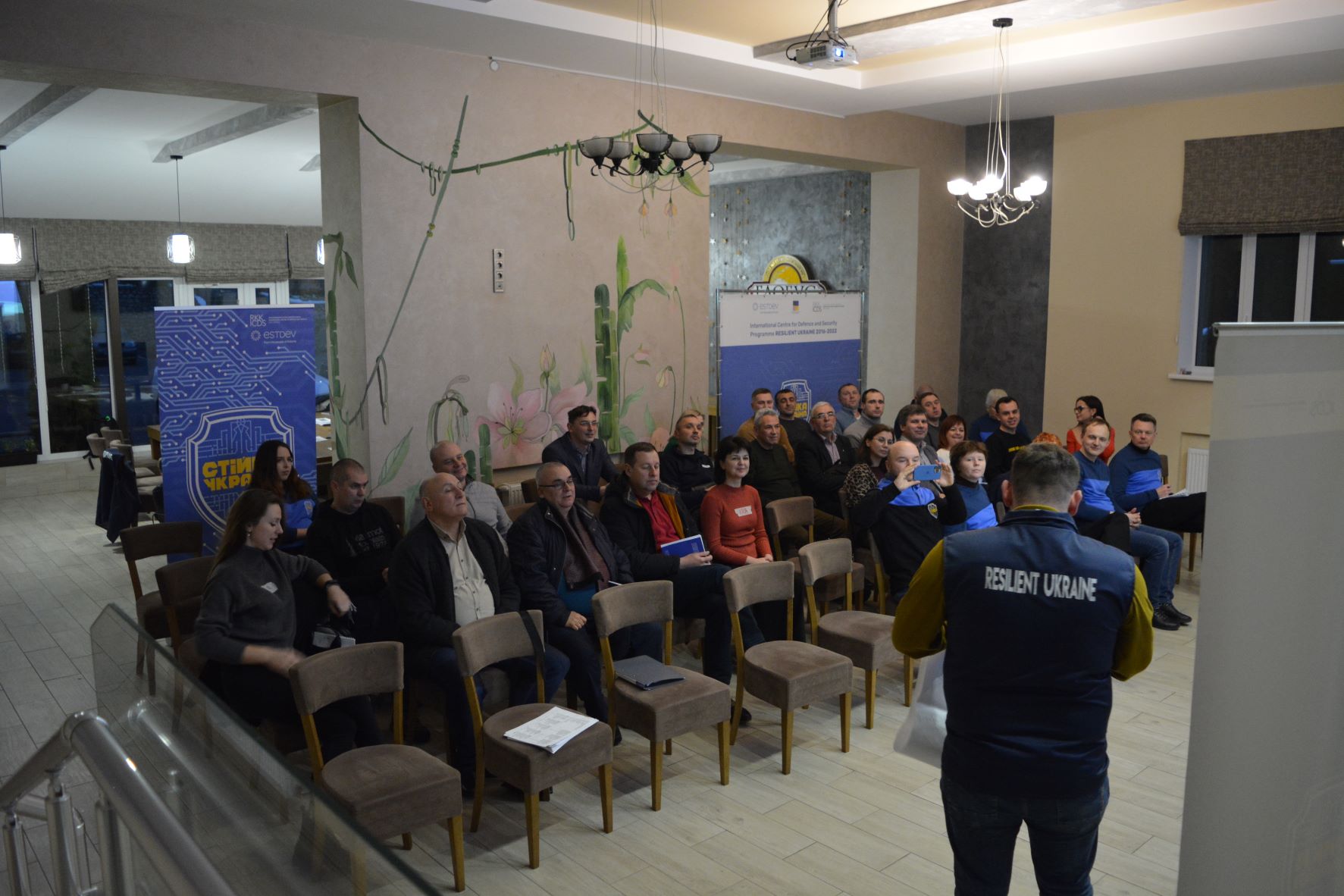"Resilient Ukraine" holds cross-sectoral crisis simulation exercises in Ternopil
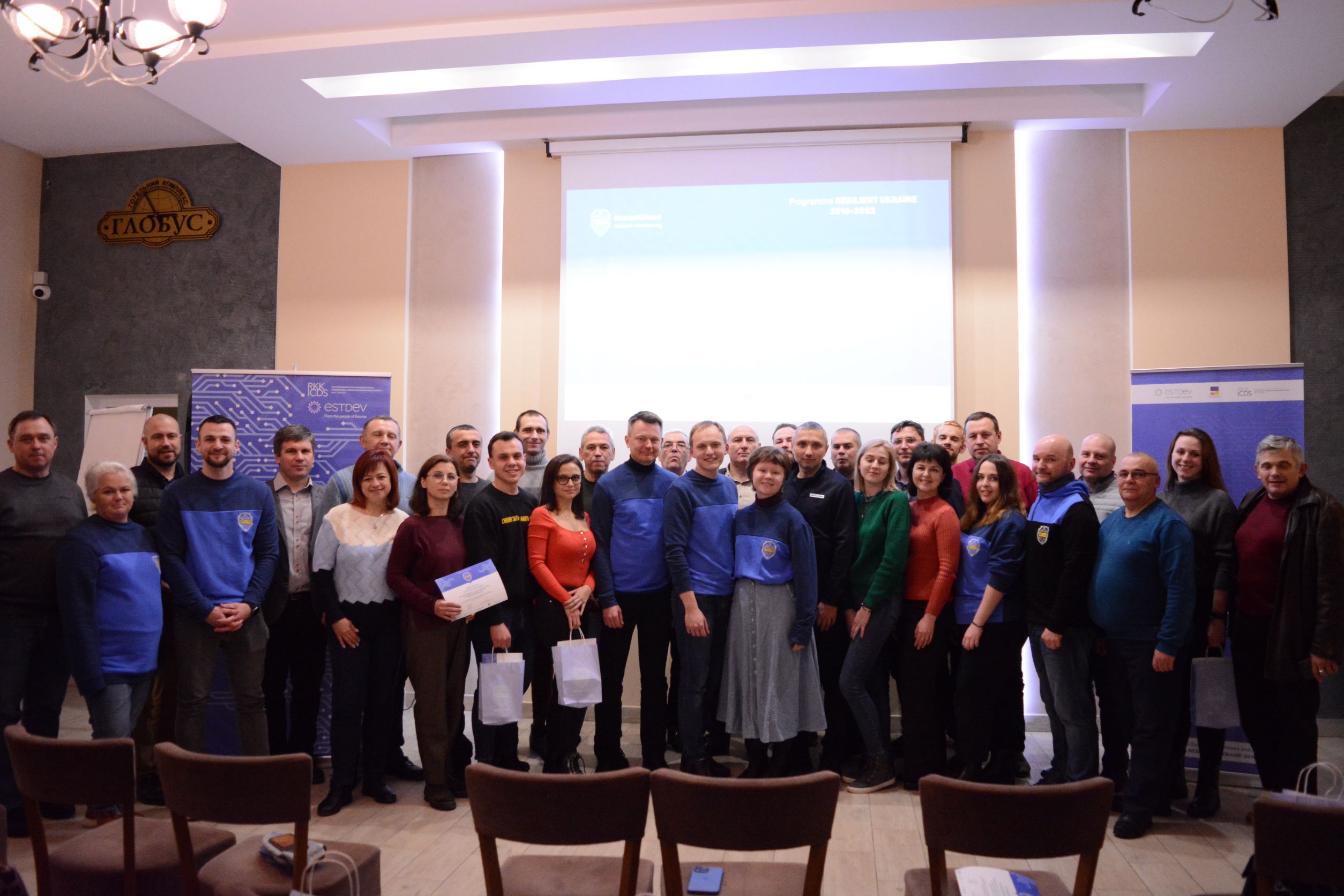
From 28 to 29 November, 2022, the “Resilient Ukraine” programme held cross-sectoral crisis simulation exercises in Ternopil.
26 participants took part in the exercises including media and civil society representatives, as well as officials of the Ternopil Regional Military Administration, the Ternopil City Council, and the Main Directorate of the State Emergency Service of Ukraine in the Ternopil region.
Dmitri Teperik, ICDS Chief Executive and “Resilient Ukraine” Programme Director, states that each of these exercises is exceptional because every Ukrainian city has its own unique experience. Since 2014 and onward, but especially after the great war broke out on 24 February 2022, local communities gained practical knowledge, having dealt with multiple crisis situations and emergencies.
“The cross-sectoral crisis simulation exercises are based on an experimental approach that incorporates a peer-to-peer learning process while tackling a number of challenges and tasks”, explained Dmitri Teperik. “Ukraine is a unique place to hold such exercises as it has gained a lot of experience and practical skills on how to handle complex challenges. This experience should be analysed thoroughly and adopted by other European countries to strengthen their resilience”, he pointed out.
The “Resilient Ukraine” programme engages as wide a range of Ukrainian society as possible to demonstrate the practical importance of each sector through solving a complex crisis together.
“In each city where we hold table-top exercises, the composition of participants is slightly different. However, our approach focuses on engaging the whole spectrum of Ukrainian society. The reasoning behind this is simple: no crises may be handled within one sector, structure, or institution. In order to deal with them effectively, you need various sectors to cooperate”, mentioned Dmitri Teperik.
Andriy Korniichuk, a participant in the table-top exercises in Ternopil and a PR specialist at Ternopil Regional Military Administration, agrees that the cooperation component and multi-sectoral approach are crucial for dealing with crises.
“During the exercises, our team came up with a method of interaction between public agencies in order to accommodate different categories of citizens. We engaged local self-governing bodies, the State Emergency Service, and educational institutions to tackle the challenges that we faced within the crisis simulation scenario”, said Andriy Korniichuk. “This is yet another reminder that we should involve as wide a number of different sectors and experts as possible to manage an emergency. Only by joint efforts, cooperation, and coordination can we mitigate any crisis”, he summarized.
At the same time, another participant mentioned creativity as an element of crisis management.
“We were supposed to be creative to produce innovative solutions to problems that appear unsolvable”, stated Iryna Krupa, assistant to the Chief of Public Relations at the Main Directorate of the Emergence Service of Ukraine in Ternopil region.
Meanwhile, the “Resilient Ukraine” experts emphasised the skillfulness and proactiveness demonstrated by the participants.
“Participants of the table-top exercises were open-minded and eager to learn. They drove the scenario and challenged us more than we challenged them”, summed up Kaisa Üprus-Tali, project mentor and expert on social and health care.
Ternopil was the seventh city where the “Resilient Ukraine” programme held the cross-sectoral crisis simulation exercises. In 2022, the project team has already visited Sumy, Dnipro, Chernivtsi, Ivano-Frankivsk, Lviv, and Uzhgorod. The next table-top exercises are scheduled to begin in January 2023. Stay tuned!
Reference:
The International Centre for Defence and Security (ICDS) is the leading think-tank in Estonia specialising in foreign policy, security, and defence issues. We aspire to be the regional knowledge hub of the first choice for the security and defence communities of Estonia, its allies, and partners.
The “Resilient Ukraine” programme aims at developing standards to measure Ukrainian society's resilience and continues to improve this system. "Resilient Ukraine" has been operated by the International Center for Defence and Security (ICDS) since 2016, with support from the Estonian Ministry of Foreign Affairs within the development cooperation programme.
The “Strengthening Ukraine’s Societal Resilience through Building Regional Expertise and Analytical Capacity in Civil Security Issues” project is implemented with financial support from the U.S. Department of State Office of the Assistance Coordinator for Europe and Eurasia under the Eighth Round of the Development Cooperation Partnership (DCP) Program.
